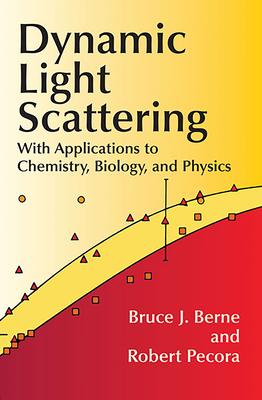Lasers play an increasingly important role in a variety of detection techniques, making inelastic light scattering a tool of growing value in the investigation of dynamic and structural problems in chemistry, biology, and physics. Until the initial publication of this work, however, no monograph treated the principles behind current developments in the field.This volume presents a comprehensive introduction to the principles underlying laser light scattering, focusing on the time dependence of fluctuations in fluid systems; it also serves as an introduction to the theory of time correlation functions, with chapters on projection operator techniques in statistical mechanics.
The first half comprises most of the material necessary for an elementary understanding of the applications to the study of macromolecules, or comparable sized particles in fluids, and to the motility of microorganisms. The study of collective (or many particle) effects constitutes the second half, including more sophisticated treatments of macromolecules in solution and most of the applications of light scattering to the study of fluids containing small molecules.With its wide-ranging discussions of the many applications of light scattering, this text will be of interest to research chemists, physicists, biologists, medical and fluid mechanics researchers, engineers, and graduate students in these areas.

Dynamic Light Scattering: With Applications to Chemistry, Biology, and Physics
Lasers play an increasingly important role in a variety of detection techniques, making inelastic light scattering a tool of growing value in the investigation of dynamic and structural problems in chemistry, biology, and physics. Until the initial publication of this work, however, no monograph treated the principles behind current developments in the field.This volume presents a comprehensive introduction to the principles underlying laser light scattering, focusing on the time dependence of fluctuations in fluid systems; it also serves as an introduction to the theory of time correlation functions, with chapters on projection operator techniques in statistical mechanics.
The first half comprises most of the material necessary for an elementary understanding of the applications to the study of macromolecules, or comparable sized particles in fluids, and to the motility of microorganisms. The study of collective (or many particle) effects constitutes the second half, including more sophisticated treatments of macromolecules in solution and most of the applications of light scattering to the study of fluids containing small molecules.With its wide-ranging discussions of the many applications of light scattering, this text will be of interest to research chemists, physicists, biologists, medical and fluid mechanics researchers, engineers, and graduate students in these areas.